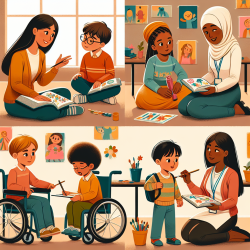The COVID-19 pandemic has highlighted significant racial disparities in health outcomes across the United States. A recent study titled "Racial (In)Equity in South Los Angeles—Community Centered Experiences with COVID-19 Syndemics" provides valuable insights into these disparities and offers recommendations for practitioners aiming to improve their skills and services in marginalized communities.
Key Findings from the Study
The research conducted by Üsküp et al. (2024) focused on Black and Latina/o/x communities in South Los Angeles, a region disproportionately affected by the pandemic. The study utilized a socioecological framework to understand the factors influencing COVID-19 vaccination decisions among these communities. Key findings include:
- Medical Mistrust: Historical mistreatment and systemic inequities have fostered deep-seated mistrust in medical institutions among minority groups.
- Misinformation: Rumors and false information about vaccines have significantly influenced vaccination decisions.
- Accessibility Issues: Barriers such as lack of transportation and technological challenges have hindered vaccine access.
- Socioeconomic Hardships: The pandemic exacerbated existing economic and social challenges, impacting health decisions.
Recommendations for Practitioners
The study emphasizes the importance of building trust and providing tailored information to support informed health decisions in marginalized communities. Here are some ways practitioners can implement these findings:
- Cultural Competence: Develop a deeper understanding of the historical and cultural contexts that contribute to medical mistrust. Engage in continuous learning through webinars, conferences, and publications focused on minority health.
- Community Engagement: Collaborate with trusted community leaders and organizations to disseminate accurate information and dispel myths about vaccines.
- Diversity Initiatives: Advocate for policies that prioritize funding for diversity and equity initiatives within healthcare systems. Encourage the hiring of diverse staff who can relate to the community's experiences.
- Simplified Access: Work with local authorities to address logistical barriers to vaccine access, such as transportation and online registration challenges.
The Importance of Further Research
This study underscores the need for ongoing research to address racial inequities in healthcare. Practitioners are encouraged to engage with academic institutions and participate in studies that explore innovative solutions to these persistent challenges. By staying informed and involved, practitioners can contribute to a more equitable healthcare landscape.
Racial (In)Equity in South Los Angeles—Community Centered Experiences with COVID-19 Syndemics










